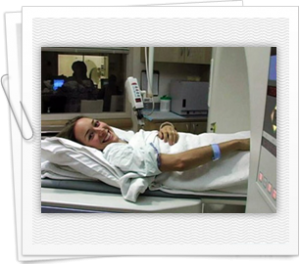Online CPR Certification Blog
Confronting mortality in respect to a doctor’s life
Date: February 17th, 2014
 To start off, we cite a doctor by the name Dr. Desiree Pardi who at her peak was a palliative care medical director. She was based in New York at Weill Cornell Medical center. Her story ends tragically as she lost her life in 2009 aged 41yrs after suffering from metastatic breast cancer.
To start off, we cite a doctor by the name Dr. Desiree Pardi who at her peak was a palliative care medical director. She was based in New York at Weill Cornell Medical center. Her story ends tragically as she lost her life in 2009 aged 41yrs after suffering from metastatic breast cancer.
The story of her life creates a clear view of how clinicians dealing with palliative care need to put into perspective how they can relate mortality with their personal profession.
Dr. Desiree Pardi’s story isn’t at all foreign in the medical world. It’s very sad that the medical world had to lose such talent to the cruel hands of death and that’s why our deepest condolences go to her husband Robert, and her entire family. This is because the article might not be appealing to all and that’s why we offer our deepest sympathies in advance as its main objective is only based on educating and informing others.
Dr. Desiree Pardi’s inside story
According to the story told, the good doctor wanted to be given any form of therapy that would increase the chances of her living longer. She wanted this even if the therapy wouldn’t modify the cancer. She put it clearly to her husband that she would like comfort measures taken should she be close to her death. She was treated by Dr. Betty Lim who always honored her patient’s will. This is evident after she took comfort measure after trying to aggressively treat a malignant bowel obstruction with little success.
The story sways from the real objective of palliative care and makes it look like an area where the main idea is to help patient come to terms with the inevitable. They point out that palliative care is something that makes a patient obtains a mindset that has them preferring to receive therapy only.
A short part of the story
It’s highly advisable that you read the story so to get a better understanding. A small quotation from the article states that
“She went into an emergency room with a high fever. This happened in the year 2008 while she was in Boston enjoying her vacation. The following day, as doctors were trying hard to contemplate the intensity of her underlying cancer, “They asked me if I wanted palliative care to come and see me” She refused angrily despite the fact that she had been advising people to let go. She on the other hand wanted to fight on after being faced with such a situation at 40 yrs of age.”
Dr. Pardi must have been aware of such options. She was well aware that palliative care was only used in the case where there was no other option. She had already relinquished her rights to her husband so the mention of palliative care without her consent probably scared her. Based on the story, there is a high possibility that she didn’t know what was coming.
Her fear for palliative care was normal, even for a professional who administers the same. There was evidence of denial, which is the case for most people who are told about their fatal ailments. Her story enlightens us about palliative care. Dr. Desiree was a clear leader in her field and this story helps highlight certain the issues of palliative care doctors having to confront their own mortality.
